| Coach | NA |
| Venue | Estádio Nacional |
Belenenses Trivia
Belenenses predictions
Predictions for Belenenses: See upcoming and historic predictions for Belenenses below.
Disclaimer: Past performance does not guarantee future results. Betting involves risk; only wager what you can afford to lose. Always gamble responsibly.
Belenenses Opinions
 Who is the greatest Belenenses player of all time?
Who is the greatest Belenenses player of all time?
Belenenses latest results
| 28/05 | 1 - 1 | ||
| 20/05 | 2 - 1 | ||
| 13/05 | 2 - 2 | ||
| 05/05 | 0 - 2 |
Belenenses latest transfers
| Date | Player | From | To | Price |
|---|---|---|---|---|
| 2021-08-26 | M. Cassierra | Belenenses | PFC Sochi | € 1.2M |
| 2019-07-01 | Reinildo | Belenenses | Lille | € 3M |
| 2017-02-14 | Gerso | Belenenses | Sporting Kansas City | € 1.5M |
Segunda Liga standings
| Rank | Team | MP | W | D | L | GF | GA | GD | Pts |
|---|---|---|---|---|---|---|---|---|---|
| 1 |
 Santa Clara
Santa Clara
|
28 | 17 | 8 | 3 | 39 | 17 | 22 | 59 |
| 2 |
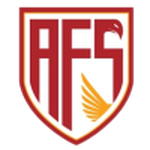 AVS
AVS
|
28 | 18 | 2 | 8 | 42 | 28 | 14 | 56 |
| 3 |
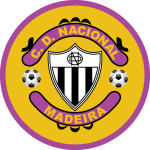 Nacional
Nacional
|
28 | 16 | 7 | 5 | 50 | 30 | 20 | 55 |
| 4 |
 Maritimo
Maritimo
|
27 | 14 | 7 | 6 | 42 | 24 | 18 | 49 |
| 5 |
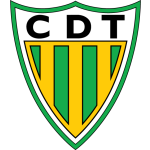 Tondela
Tondela
|
28 | 11 | 12 | 5 | 41 | 35 | 6 | 45 |
| 6 |
 Pacos Ferreira
Pacos Ferreira
|
28 | 12 | 7 | 9 | 33 | 25 | 8 | 43 |
| 7 |
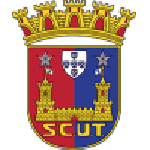 Torreense
Torreense
|
27 | 11 | 6 | 10 | 34 | 29 | 5 | 39 |
| 8 |
 Academico Viseu
Academico Viseu
|
27 | 8 | 14 | 5 | 31 | 27 | 4 | 38 |
| 9 |
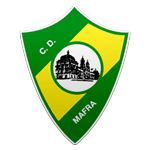 Mafra
Mafra
|
28 | 10 | 8 | 10 | 33 | 32 | 1 | 38 |
| 10 |
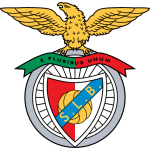 Benfica B
Benfica B
|
27 | 10 | 7 | 10 | 35 | 34 | 1 | 37 |
| 11 |
 FC Porto B
FC Porto B
|
27 | 10 | 7 | 10 | 42 | 36 | 6 | 37 |
| 12 |
 União de Leiria
União de Leiria
|
28 | 8 | 9 | 11 | 35 | 34 | 1 | 33 |
| 13 |
 Penafiel
Penafiel
|
28 | 9 | 4 | 15 | 25 | 34 | -9 | 31 |
| 14 |
 Leixoes
Leixoes
|
28 | 6 | 12 | 10 | 22 | 31 | -9 | 30 |
| 15 |
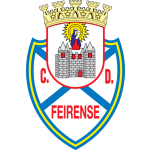 Feirense
Feirense
|
28 | 7 | 4 | 17 | 25 | 42 | -17 | 25 |
| 16 |
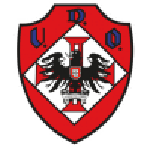 Oliveirense
Oliveirense
|
27 | 5 | 9 | 13 | 25 | 42 | -17 | 24 |
| 17 |
 Vilaverdense
Vilaverdense
|
28 | 6 | 3 | 19 | 23 | 50 | -27 | 20 |
| 18 |
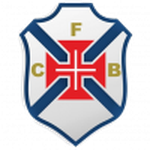 CF Os Belenenses
CF Os Belenenses
|
28 | 4 | 8 | 16 | 21 | 48 | -27 | 20 |
About Belenenses
Clube de Futebol Os Belenenses, commonly known as Belenenses, is a prominent football club based in Lisbon, Portugal. Established on September 23, 1919, the club is named after the historic parish of Belém, where it was founded. The club's home ground is the Estádio do Restelo, a stadium with a seating capacity of over 20,000 spectators, located near the famous Jerónimos Monastery.
Belenenses is known for its distinctive blue and white uniforms, earning them the nickname "Os Azuis do Restelo" or "The Blues of Restelo". The club's emblem, a blue shield with a white cross, is a tribute to the historical symbol of the city of Lisbon.
Belenenses has a rich history in Portuguese football. They are one of the "Três Grandes" (Big Three) clubs outside the dominant trio of Benfica, Porto, and Sporting CP to have won the Primeira Liga, the top tier of Portuguese football. This feat was achieved in the 1945-46 season. The club has also had success in the Taça de Portugal, Portugal's premier knockout tournament, winning it three times.
Throughout its history, Belenenses has produced and nurtured numerous talented players who have gone on to represent Portugal at the international level. Notable alumni include Vicente Lucas, a key player in Portugal's third-place finish in the 1966 World Cup, and José António, who represented Portugal in the 1984 European Championship.
However, the club has also faced its share of challenges. Financial difficulties and inconsistent performances led to a period of decline in the late 20th and early 21st centuries. In 2018, a split occurred within the club, leading to the formation of Belenenses SAD, a separate entity that took over the club's Primeira Liga status, while the original club, CF Os Belenenses, was forced to restart in the lower divisions.
Despite these setbacks, Belenenses remains a beloved institution in Portuguese football. The club is known for its passionate fan base, who continue to support the team through thick and thin. The club also maintains a strong commitment to youth development, with a highly respected academy that continues to produce talented players.
In addition to football, Belenenses also has teams competing in other sports, including futsal, rugby, and basketball, reflecting the club's commitment to promoting sport and physical activity in the community.
In summary, Belenenses is a club with a rich history and a deep connection to its local community. Despite recent challenges, it continues to play a significant role in Portuguese football and remains a symbol of the spirit and passion of the sport.















